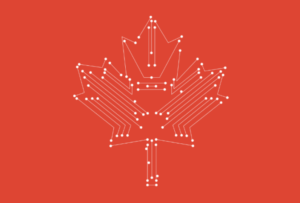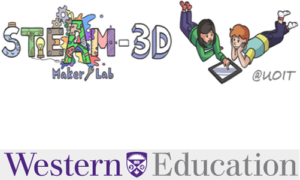AI in Education
Report of the MKN webinar by Andy diSessa (Berkeley Graduate School of Education)
— by George Gadanidis
Context
 Canada was the first country, in 2017, to announce an AI Strategy, with a budget of $125 million. Other countries soon followed suit, some dwarfing Canada’s financial commitment. China for example committed $25 billion.
Canada was the first country, in 2017, to announce an AI Strategy, with a budget of $125 million. Other countries soon followed suit, some dwarfing Canada’s financial commitment. China for example committed $25 billion.
Canada’s AI Strategy aims to:
- To increase the number of outstanding artificial intelligence researchers and skilled graduates in Canada.
- To establish interconnected nodes of scientific excellence in Canada’s three major centres for artificial intelligence in Edmonton, Montreal and Toronto.
- To develop global thought leadership on the economic, ethical, policy and legal implications of advances in artificial intelligence.
- To support a national research community on artificial intelligence
Canada’s AI strategy is managed by CIFAR. For more information, please see https://www.cifar.ca/ai/pan-canadian-artificial-intelligence-strategy.
The AI focus of governments and industry is raising questions about the role of AI in education, both as a tool and as a topic of study.
Andy diSessa WEBINAR – 19 May 2019
 We invited Andy diSessa to speak on AI because of his uncanny ability to focus on the big picture and to put trends in meaningful perspective. In the first webinar, we saw a big picture when Andy helped us understand what he means by computational literacy by discussing the analogy of algebra literacy, and how the work of Galileo would have been different if algebra was a mass literacy in his era. We also saw a big picture when Andy presented a critique of the current focus on computational thinking in education.
We invited Andy diSessa to speak on AI because of his uncanny ability to focus on the big picture and to put trends in meaningful perspective. In the first webinar, we saw a big picture when Andy helped us understand what he means by computational literacy by discussing the analogy of algebra literacy, and how the work of Galileo would have been different if algebra was a mass literacy in his era. We also saw a big picture when Andy presented a critique of the current focus on computational thinking in education.
One of the big picture ideas that Andy shared in the second webinar centred on AI as a topic of study for kids (summarized briefly below).
A quick overview of some ideas discussed by Andy diSessa
First (early) wave of AI
Andy was attracted to “careful descriptions of knowing and learning”. But “turned off” by a focus on guided/tutored learning, the lack of grounded models of knowledge, and a focus on engineering rather than epistemology (that is, getting a machine to do something, by hook or crook).
Deep learning: second wave of AI
This is the current era of approaches like neural networks, which are not really “neural” or in any way how humans learn or think: neural networks do not really “know” anything, but “operate on complex and hidden statistical correlations.”
Third wave of AI: looking to the future
The future goal is to design machines that can self-learn, to generalize and abstract, and adapt and respond to dynamic goals and contexts.
Worries of AI in education
“At worst it could be something like this: Kids should learn X because it’s trendy, and anything they learn about X is just fine. And that’s not fine with me.”
VIDEO of webinar
Timeline of video content
- 0:03 – Introductions
- 4:25 – Presentation outline
- 9:35 – History of the first wave of AI
- 15:25 – Deep learning: second wave of AI
- 25:18 – AI as a literacy?
- 27:20 – Third wave of AI
- 30:27 – Genres of AI in education
- 37:41 – Worries
- 40:21 – A thought experiment
- 55:14 – Final words
- 57:30 – CIFAR
- 1:04 – Q & A
MKN MEMBER WORK on AI in education
 The STEAM3D Lab, led by Janette Hughes at Ontario Tech University, in partnership with George Gadanidis at Western University, have been developing resources, providing outreach in schools, engaging students in March Break and Summer Camps, and conducting research on AI in education. A new AI for Humans resource is in the works, to be released in the Fall.
The STEAM3D Lab, led by Janette Hughes at Ontario Tech University, in partnership with George Gadanidis at Western University, have been developing resources, providing outreach in schools, engaging students in March Break and Summer Camps, and conducting research on AI in education. A new AI for Humans resource is in the works, to be released in the Fall.
thank you
Thank you to Andy diSessa for graciously agreeing to offer 2 webinars over 2 weeks!
Thank you to Lisa Anne Floyd and Steve Floyd for expertly facilitating these MKN webinars!
